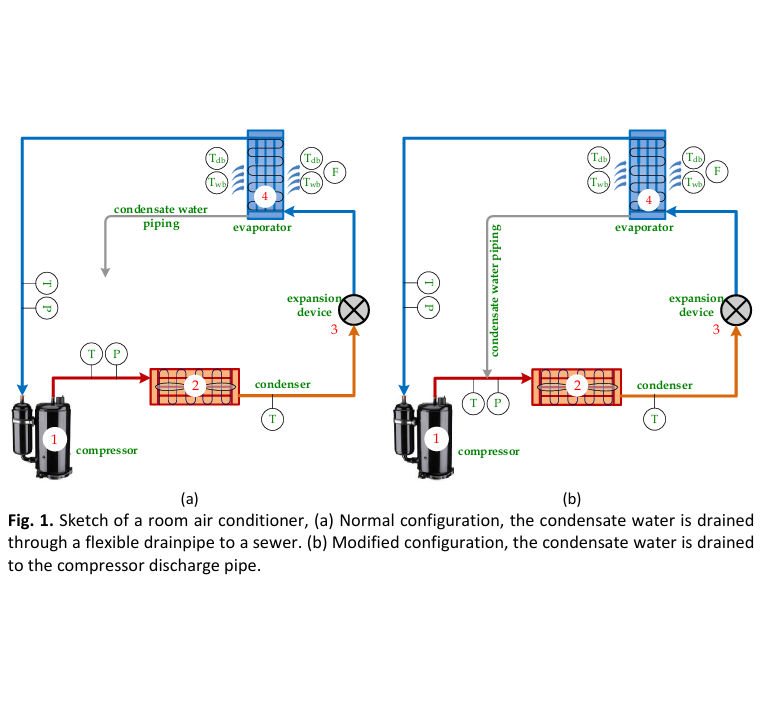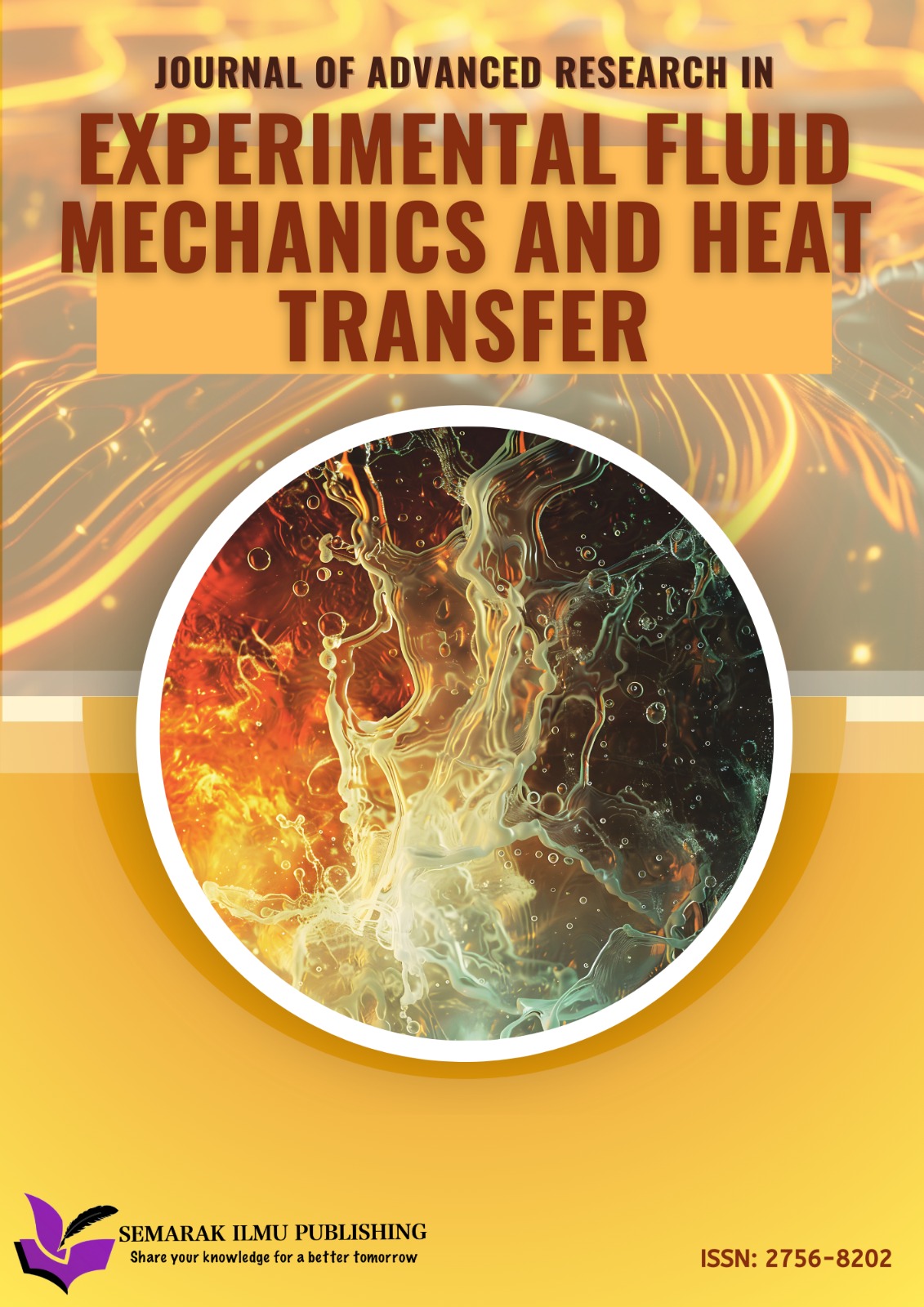Effect of Discharge Cooling using Condensate Water on the Performance of an Air Conditioner: A Field Testing
DOI:
https://doi.org/10.37934/arfmts.121.1.8598Keywords:
Discharge cooling, condensate water, cooling capacity, power consumption, coefficient of performanceAbstract
The effect of discharge cooling using condensate water from the evaporator on the performance of an air conditioner has been experimentally investigated. Instead of laboratory testing, the air conditioner was tested under real conditions, as is generally an AC unit installed in a room. The indoor unit was installed inside the room at a height of 2.6 m from the floor, while the outdoor unit was installed outside at floor level. In this research, the air conditioner was tested under two conditions, i.e., normal condition without discharge cooling and modified condition in which the condensate from the evaporator was flown and dripped to the discharge pipe. The use of discharge cooling could decrease suction and discharge pressure, as well as suction and discharge temperature. It also slightly decreases supply air temperature. Better performance of the air conditioner with the use of discharge cooling was shown by the decrease of power consumption by 3.5% and increase of cooling capacity by 2.45%. As a result, the coefficient of performance (COP) increases by 6.31%.
Downloads






























